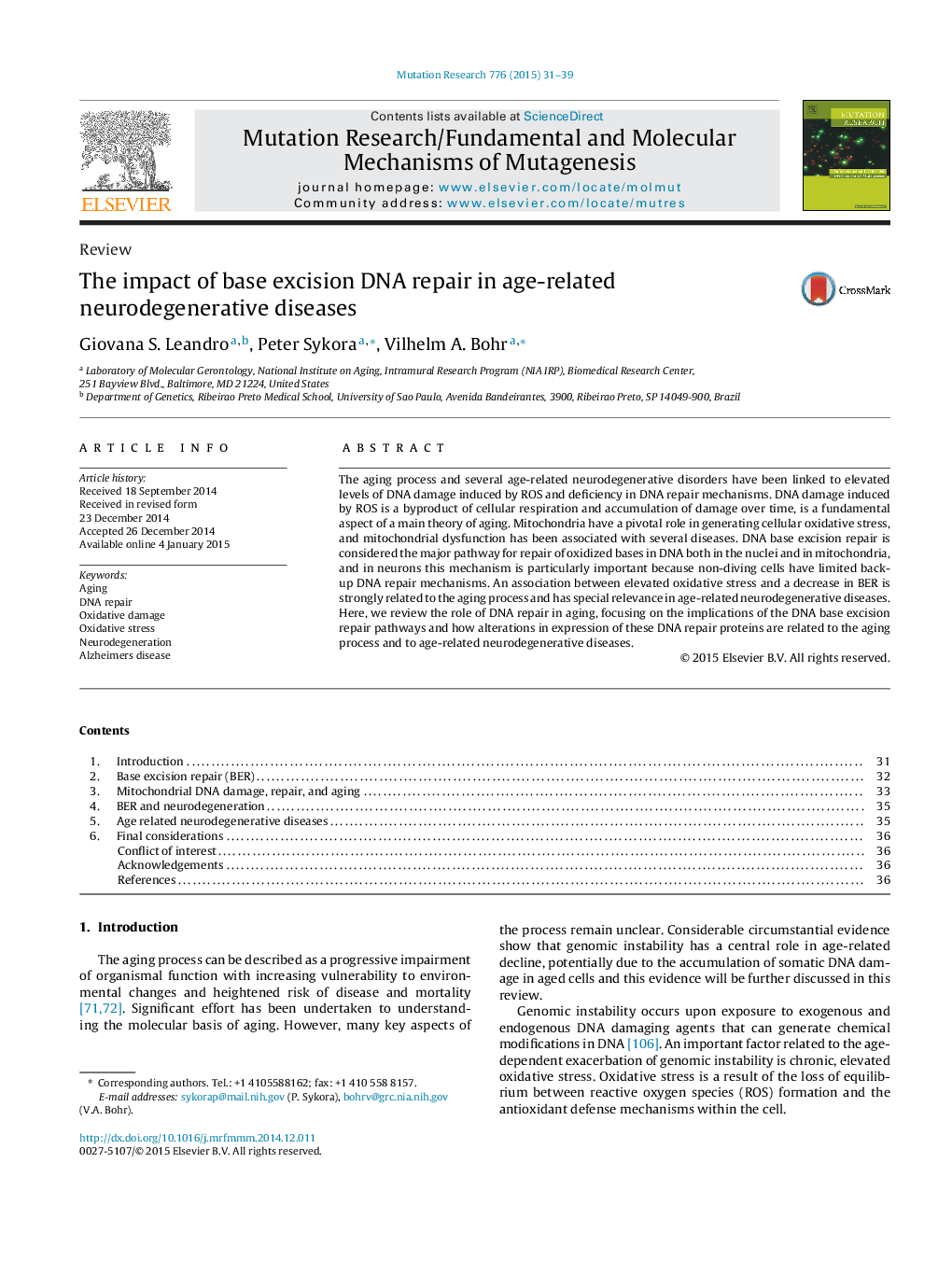| Article ID | Journal | Published Year | Pages | File Type |
|---|---|---|---|---|
| 2146260 | Mutation Research/Fundamental and Molecular Mechanisms of Mutagenesis | 2015 | 9 Pages |
Abstract
The aging process and several age-related neurodegenerative disorders have been linked to elevated levels of DNA damage induced by ROS and deficiency in DNA repair mechanisms. DNA damage induced by ROS is a byproduct of cellular respiration and accumulation of damage over time, is a fundamental aspect of a main theory of aging. Mitochondria have a pivotal role in generating cellular oxidative stress, and mitochondrial dysfunction has been associated with several diseases. DNA base excision repair is considered the major pathway for repair of oxidized bases in DNA both in the nuclei and in mitochondria, and in neurons this mechanism is particularly important because non-diving cells have limited back-up DNA repair mechanisms. An association between elevated oxidative stress and a decrease in BER is strongly related to the aging process and has special relevance in age-related neurodegenerative diseases. Here, we review the role of DNA repair in aging, focusing on the implications of the DNA base excision repair pathways and how alterations in expression of these DNA repair proteins are related to the aging process and to age-related neurodegenerative diseases.
Related Topics
Life Sciences
Biochemistry, Genetics and Molecular Biology
Cancer Research
Authors
Giovana S. Leandro, Peter Sykora, Vilhelm A. Bohr,
